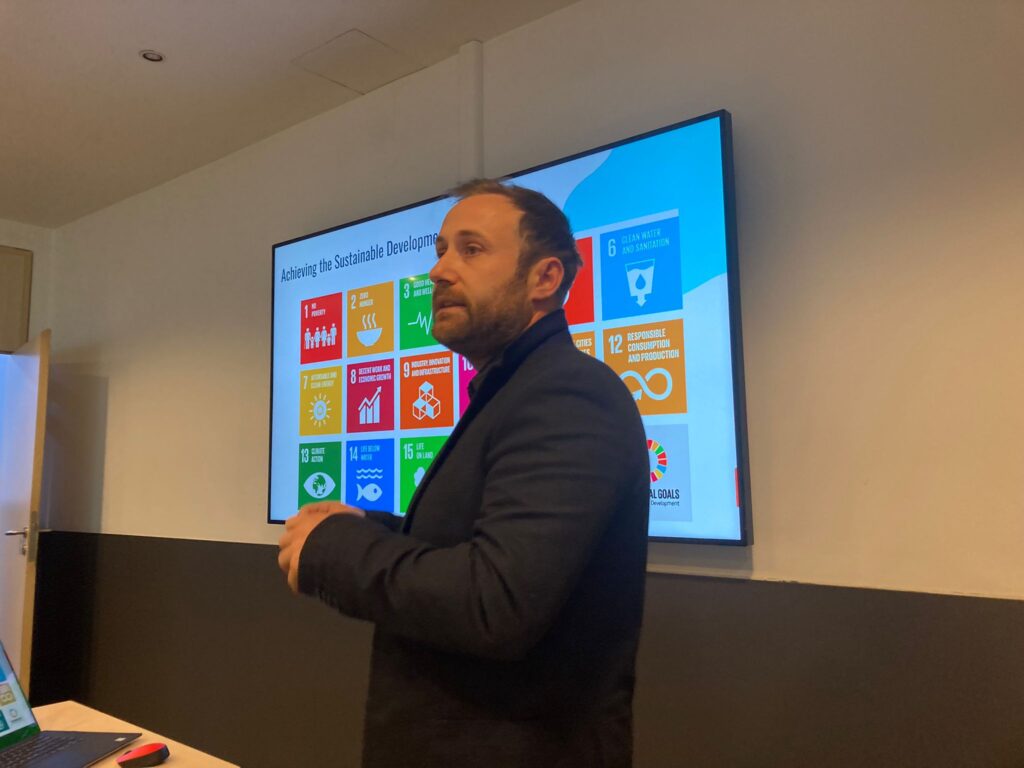Why is it important to connect and empower young people in the water sector?
“It is clear that young people should be at the heart of any water-related resilience agenda. Connecting young professionals will create the fertile ground for exchanging ideas and knowledge, sharing resources, and facilitating a synergistic spirit towards a sustainable water future. Involving and empowering young voices in the sector is fundamental since their fresh ideas and perspectives for sustainable development can make the difference in the sector.”
What can better-connected water professionals mean for water sector organizations?
“In my view, a strong network of connected water professionals is crucial in addressing the current fronts that water suffers from. Since water is a key component of a Nexus system, bringing together professionals with multidisciplinary backgrounds is beneficial for a holistic view of the sector. Water can be seen from different perspectives, such as environmental, physical, economic, political, etc., that face different pressures in different spatial and temporal scales. Under this frame, a better-connected international water professionals’ network can establish a well-informed and experienced workforce to tackle issues at different scales.”
What and where is your current work position?
“I work as a postdoctoral researcher in the Civil Engineering department of the University of Thessaly, Volos, Greece. I belong to the research team of Professor Chrysi Laspidou who is the vice president of Water Europe and an EJWP Ambassador. I’m involved in a series of EU-funded projects dealing with the water-energy-food Nexus, water resources modelling and management, and climate adaptation and mitigation strategies toward sustainability. Some of the scientific projects I am involved in, are: ARSINOE, NEXOGENESIS, MAGO, and SMARTEN.”
What value are you bringing to your organization and career from your EJWP participation?
“Collaborating with young water professionals from different scientific backgrounds is the most valuable aspect for me. I have broadened my horizons beyond engineering, and now I have experience on other water-related specialties, such as social and political directions. Although engineering is essential in dealing with the water sector, social sciences can really contribute in engaging and convincing our communities about the need to collectively act if we want a future of prosperity. A key experience so far was participating in Water Innovation Europe 2022 in Brussels, where the role of water in the net-zero carbon society was presented.”
What have you already developed in knowledge or skills?
“I think that EJWP has positively influenced some of my personal/professional skills such as the ability to effectively communicate and collaborate with teammates towards achieving a common goal. Moreover, participating in the different EJWP projects, I got some useful feedback regarding different collaboration pathways adjusted to the time and effort needed to accomplish the assignments.”
What did you study?
“I hold a PhD in Environmental Informatics and Ecological Modeling for Sustainable Water Systems. My master’s is on ‘Analysis and Simulation of Hydraulic and Water Resource Systems’, and I obtained my Environmental Engineering integrated master’s from the Technical University of Crete (TUC).
Where and in which position would you like to be working in five years?
“In five years from now, I envision myself to be working in an international organization dealing with the resources Nexus. I strongly believe that incorporating the Nexus principles in current and future activities is the only way to achieve sustainable development. My vision is to influence our communities to make a systemic shift towards collective thinking. This is the only way to sustain our resources for the generations to come.”

